Composers Baroque
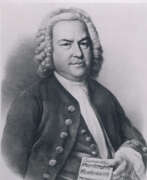

Johann Sebastian Bach was a German Baroque composer, Kapellmeister, organist and teacher.
Johann Sebastian Bach was the youngest child in the family of musician Johann Ambrosius Bach (1645-1695) and belonged to a large family of North German musicians whose dynasty he himself traced back to his great-great-grandfather Veit Bach, a Lutheran baker in the late 16th century. Johann was orphaned at an early age and was taken into care by his older brother, the organist Johann Christoph Bach. In August 1703 he was appointed official organist of the church in Arnstadt, then from 1714 he worked as Kapellmeister and concertmaster at the Weimar court, to which time his first compositions date. In 1736 he was appointed court composer to the King of Saxony, thus recognizing his merits as a composer and organist. While working as a concertmaster, Bach also mastered almost all the instruments in the orchestra.
In the last years of his life, Bach was nearly blind and living poorly, and his Baroque music was considered outdated as tastes changed. But in the 19th century, interest in Bach's works increased dramatically, and he became the favorite composer of many subsequent musicians. Johann Sebastian's sons Wilhelm Friedemann, Carl Philipp Emanuel and Johann Christian continued the family dynasty and also became musicians. And Johann Sebastian Bach himself was surrounded by students throughout his life.
Although his contemporaries admired Bach's playing on the harpsichord and organ, today it is his compositions that are considered some of the finest works of mature Baroque music. His most widely known works today include the Brandenburg Concertos, the Well-Tempered Clavier, the Masses in B minor, and many other masterpieces of church and instrumental music. Bach's rich legacy includes sacred and secular compositions, especially cantatas, organ pieces and concertos (Bach composed more than 1,000 musical works in all significant genres of his time, except opera), which influenced many later composers. Johann Sebastian Bach was able to encompass and unite the major styles, forms and national traditions developed in previous generations. Today he is considered one of the greatest composers of all time.
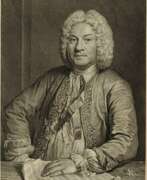

François Couperin was a French composer, organist and harpsichordist.
François Couperin is a member of a large dynasty of French musicians. At the age of 18, François succeeded his father, Charles Couperin (1638-1679), as organist at the Church of Saint-Gervais in Paris, and in 1693 he became one of the four organists of the Chapel Royal. He soon became a harpsichord teacher for the royal children, and in 1717 was appointed court harpsichordist.
François Couperin is known primarily for his harpsichord music; between 1713 and 1730 he published four books of more than 250 pieces for harpsichord. Some of them are characterized by complex accompaniment and dialogues between violin and bass, while others are light, graceful and expressive. Couperin's harpsichord pieces, even during the author's lifetime, gained great fame not only in France but also abroad. Couperin also wrote chamber music, including trio sonatas (for harpsichord and two violins) and "Royal Concertos", which he composed for Sunday evening royal entertainment. He also composed motets and other church music. Couperin's last and most significant liturgical work, Leçons de ténèbres (c. 1715), has no parallel in either French or Italian music of the period. Johann Sebastian Bach knew and appreciated this work by Couperin.
Couperin authored The Art of Touching the Clavier (1716), in which he explained in detail the technique of playing the harpsichord. And in his publications of the early 1720s, he suggested a wide variety of ways of combining French and Italian styles.
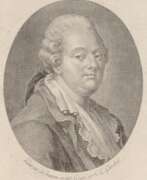

Jean-Benjamin de La Borde was a French composer, music historian, publisher and financier.
De La Borde played the violin and trained in composition. In 1748 he composed his first small opera, and in 1751 his opera Le Rossignol ou Le Mariage secret (The Nightingale or The Secret Marriage) was staged in Paris. The prolific composer went on to compose an average of 30 operas a year for 30 years, mostly of a comic nature.
De La Borde was also a prominent cultural figure of his time: he authored Essays on Music, a four-volume collection of songs for solo voice, and initiated the publication of the General and Private Description of France (1781-96).
For several years de La Borde was valet and favorite of Louis XV; he refused to leave France during the Revolution and was arrested and executed by guillotine on July 22, 1794.
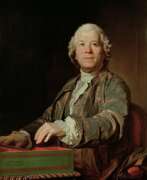

Christoph Willibald Gluck was a German classical composer and reformer of the opera genre.
Christoph showed a talent for music early on, playing violin and cello, leaving home and studying music with various teachers in Prague, Vienna and Milan. In 1741, Gluck had his first significant success with his first opera, Artasers, at the Milan theater. In 1745 Gluck, by then already well known as an opera composer, was invited to England, but in 1750 he settled in Vienna, where he lived for the rest of his life. While in Paris in 1773-79, he won the favor of Louis XVI's wife Marie Antoinette.
Christoph Gluck played a historic role in the formation of a new operatic style, becoming the main reformer in the transition from baroque to classical opera.
During his career, Christoph Gluck composed about 40 operas. Of these, his first "reformist" opera was Orpheus and Eurydice, staged in Vienna in 1762. Next were "Alceste" (1767), "Parida et Helena" (1770), "Iphigenia in Aulida" (1774), a French version of "Orpheus" (1774), and "Iphigenia in Tauris" (1779). He also wrote five ballets, of which Don Giovanni (1761) was one of the first successful action ballets.
Gluck spent the last eight years of his life in Vienna, continuing to work tirelessly. During these years he met several times with Wolfgang Mozart, who by then had already become a bright star.
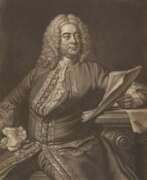

George Frideric Handel was a German-born English composer of the Baroque period.
After receiving a musical education, Handel worked briefly as an organist at the cathedral in Halle, then joined the violin section of the opera orchestra in Hamburg. After spending several years in Italy, he wrote many works there, including two operas. The style of Italian music permeated the composer's work throughout his life. Having become famous in Italy, in 1710 Handel was appointed Kapellmeister to the Elector of Hanover, the future King George I of England, and two years later he was already staging his operas in London.
In 1727 Handel became a British subject and was appointed composer to the Chapel Royal. In this capacity he wrote many musical works. From 1720 to 1728, operas at the Royal Theater in London were staged by the Royal Academy of Music, and Handel wrote the music for most of them.
In 1741, Handel wrote the most famous of his many oratorios, Messiah. Handel had a talent for musically portraying a human character in a single scene or aria - a gift he used with great dramatic power in his operas and oratorios. Although much of his music was vocal, Handel was also one of the recognized instrumental composers of the late Baroque era. Handel paid tribute to church music by composing many solemn hymns.
Handel's music has become an integral part of the national culture of England, and in Germany he is also honored as a major national composer.
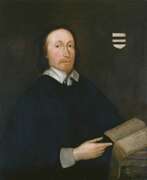

John Hilton the Younger was a British composer of the early Baroque period.
His father was the church musician, organist and composer John Hilton Senior, who died in Cambridge in 1609. Hilton Jr. earned a Bachelor of Music degree and became organist at St. Margaret's Cathedral in Westminster. In the 1630s he composed several oratorio-like works and later published a collection of 42 pieces. He is also credited as the author of several church hymns.
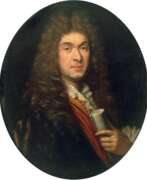

Jean-Baptiste Lully, born Giovanni Battista Lulli, was an Italian-born French composer, violinist, and conductor.
Lully spent most of his life working as a musician at the court of Louis XIV and became a French subject in 1661. He began composing music for court ballets in 1658 and collaborated with Molière on numerous comedy ballets between 1664 and 1670.
Lully is considered the leading composer of the French Baroque musical style, to which he contributed many of his own innovations. He composed several operas, chief among them the opera Armide, written especially for Louis XIV. Lully's other works include sacred works, dance music for various instruments, and suites for trumpet and strings.
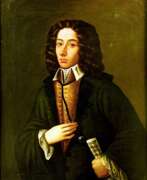

Giovanni Battista Pergolesi, born Giovanni Battista Draghi, was an Italian composer, violinist and organist, a leading representative of the Baroque and Neapolitan school.
Around 1720 he entered the Poveri Conservatory in Naples, where he earned a high reputation as a violinist. In 1732 Pergolesi was appointed maestro of the Prince of Stigliano's Chapel in Naples and soon composed his most successful work, the opera-buffa The Lady's Maid, which quickly gained popularity. His subsequent operas did not achieve the same success.
The Lady's Maid became much more popular when it was staged in Paris in 1752 after the composer's death. It also sparked fierce debate between conservatives, supporters of traditional French opera, and fans of the new Italian comic style. Pergolesi's opera-buffa became a forerunner of subsequent classical works: these are W. A. Mozart's The Marriage of Figaro, J. Rossini's The Barber of Seville, G. Verdi's Falstaff, I. Stravinsky's The Moor, and others.
Alongside secular music Pergolesi composed sacred music. His masses and hymns demonstrate the composer's ability to cope with large choral and instrumental forces, as well as with chamber music. Shortly before his death, he composed the cantata Stabat Mater, one of the composer's most inspired works, written for a small chamber ensemble (soprano, viola, string quartet and organ), filled with sublime, sincere and heartfelt lyrical feeling.
Fate, however, was not favorable to the young talent: Giovanni Battista Pergolesi died of tuberculosis in extreme poverty at the age of 26.
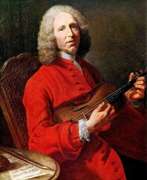

Jean-Philippe Rameau was a French late Baroque composer and music theorist.
Jean-Philippe's father worked as an organist all his life, so his son learned notes before he learned to read. He continued his musical education in Milan, playing the organ, violin and harpsichord. Rameau wrote works for the Paris theaters, composed sacred and secular music, and in 1745 became a court composer.
Rameau wrote many pieces for harpsichord, works for chorus and cantatas. Today he is recognized as the greatest French composer and the most prominent figure in the music of the 18th century.